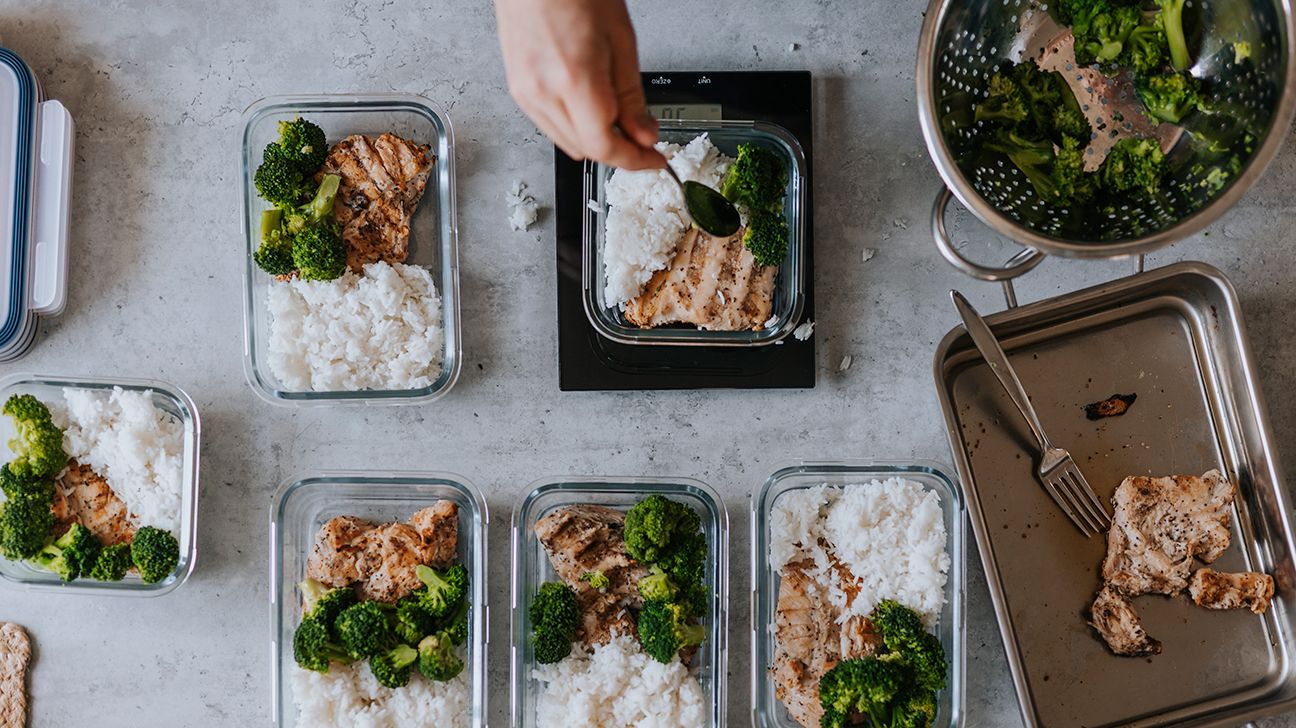Planning ahead and keeping nutrition in mind are good ways to stay healthy when you’re incredibly busy.

It can be tricky to eat healthy when your schedule is jam-packed. Sometimes grabbing fast food can be all too tempting and may seem easier. But by devoting a little time to meal prepping and shopping, you can maintain healthy eating habits on the go.
Before going grocery shopping, make a shopping list. You can organize the list according to areas of the store or the order in which you’ll be picking up the items. Produce, dairy, meat, and other fresh foods can typically be found around the perimeter of the store.
Remember to shop your pantry before going to the store and identify items you already have that you can use for meal prep.
Your shopping list should focus on ingredients that can be used in a variety of dishes, as well as staples. Items such as brown rice, lentils, and quinoa are great to have on hand for both lunches and dinners. Protein sources such as eggs, canned tuna, and tofu can also be used in a wide range of dishes.
Depending on your location, you might be able to shop online and then pick your groceries up or have them delivered to you. This can save time but may come with additional fees.
There are plenty of benefits of preparing your meals ahead of time. By cooking larger portions, you’ll be able to have multiple meals on hand.
Here are some suggestions for batch-cooked meals:
- chili
- quiche
- chicken + veggie + grain
- slow cooker pulled pork
These foods also freeze and reheat well, setting you up to have plenty of meals ready to go.
Using time-saving kitchen devices such as a slow cooker and pressure cooker can help you multitask when meal prepping. A rice cooker can make plenty of rice in a short time, setting you up with a base for many possible meals.
Plan to have meals that can be made in 15 minutes or less.
Here are some quick and easy meal ideas:
- tuna or chicken salad (you can eat it in a wrap or sandwich or on its own)
- a protein and grain bowl (you can make plenty of variations by adding vegetables, herbs, and spices)
- an omelet
You can put together meals without sacrificing nutrition. Items such as bagged salad kits, baby carrots, string cheese, yogurt, and apples are easy to add to any meal.
Creating one-pot or one-sheet-pan dishes can be helpful for reducing the time you spend cooking and cleaning up.
Here are some one-pan dish ideas:
- sheet pan stir-fry
- chicken thighs with potatoes and vegetables
- salmon with tomatoes and corn
- pierogies with Brussels sprouts
Sometimes packaged foods can be a healthy and quick option. Frozen vegetables and canned beans are a great way to start your meal prep. But check the
Another shortcut is to buy prepared items such as precooked grains (typically found in the freezer section), rotisserie chicken, and precut fruits and vegetables. You can incorporate these foods into quick and balanced meals, and they’re just as nutritious as ones you prep yourself.
Having healthy snacks on hand can be a huge help if you’re short on time.
Here are some quick snack ideas:
- hard-boiled eggs (can be purchased or prepped)
- Greek yogurt
- nuts (be mindful of serving sizes)
- apple and peanut butter
- carrots and celery
It’s important to balance your intake of protein, fiber, and healthy fats.
You can also prep individual snack packs to take with you to work or when you’re running errands. Snack packs can include cheese, crackers, fruit, vegetables, hummus, and more. Be sure to measure out the portions of each snack — using a food scale can be very helpful.
It can be tricky to maintain a nutritious diet when you have a very busy lifestyle.
By prioritizing meal prep, making mindful food choices, and finding efficient ways to incorporate nutrition into your routine, you can eat a balanced diet that supports both your well-being and your hectic life.
Ultimately, the key is to stay flexible and proactive, making sure that your diet complements your busy lifestyle rather than competing with it.


